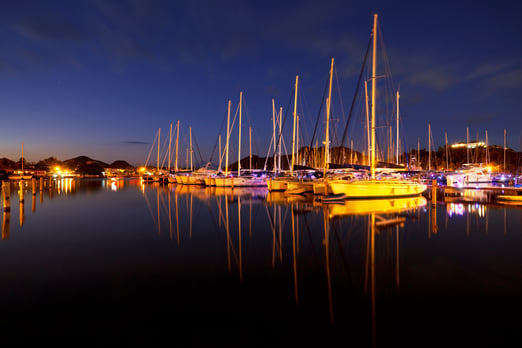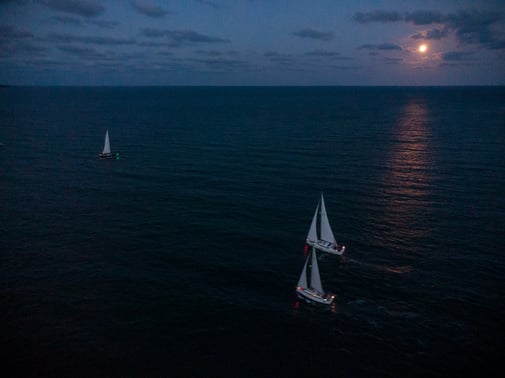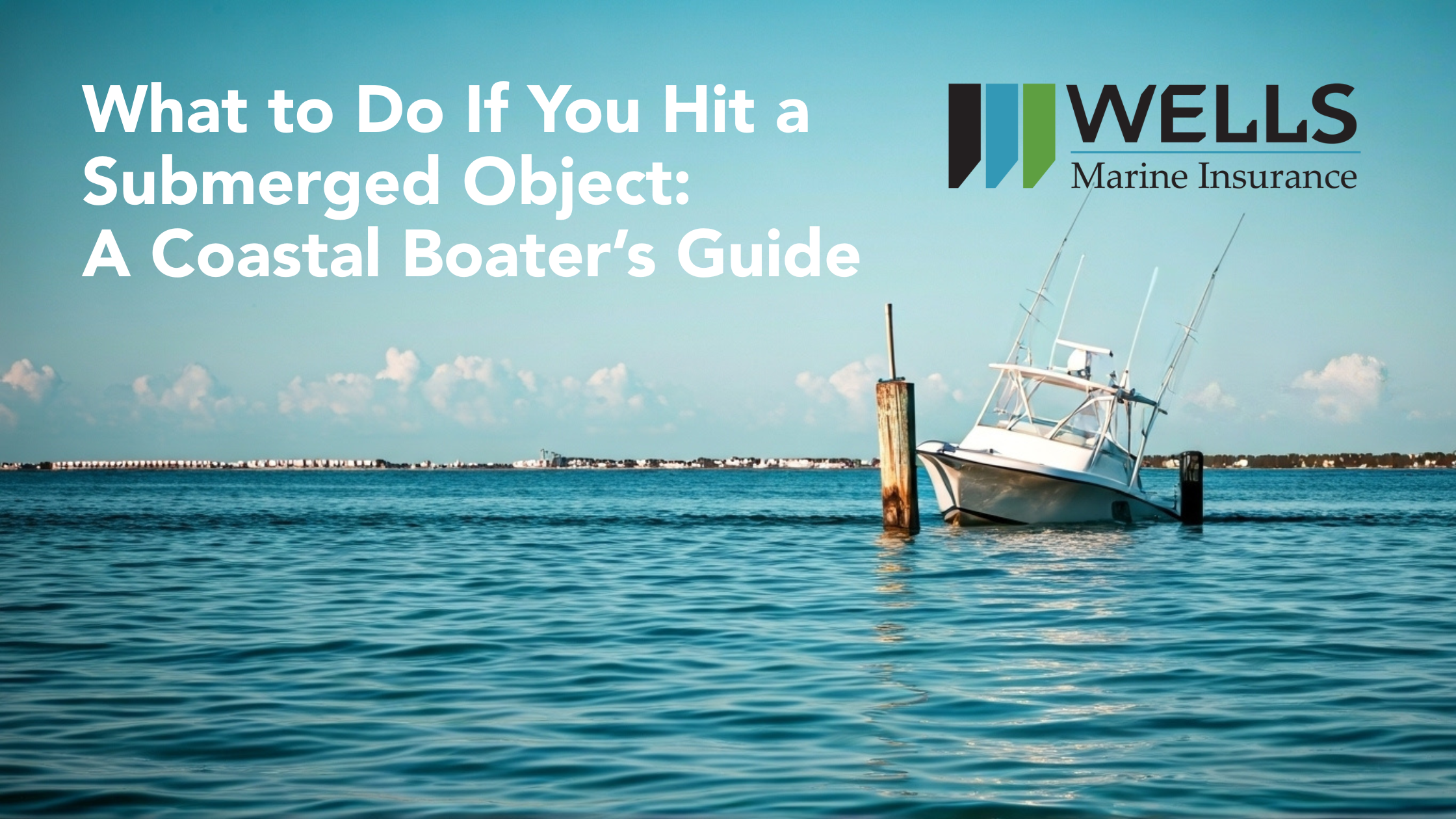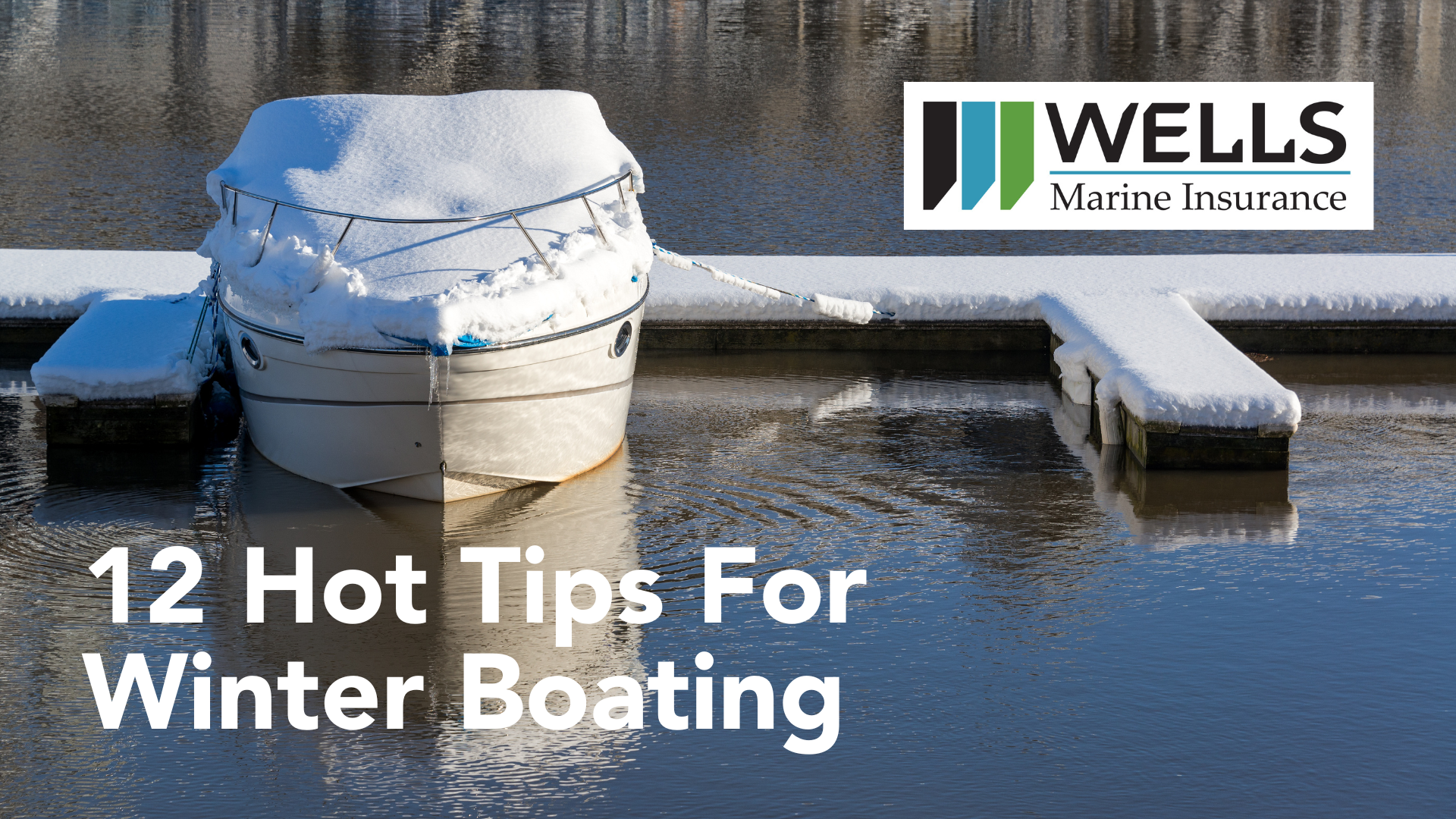Stay Safe on the Water: Boating at Night Tips
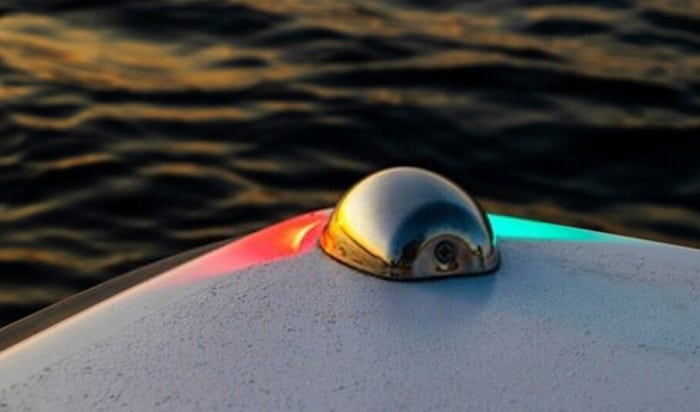
Discover essential tips for safely navigating your boat at night to ensure a memorable and secure boating experience.
Rule #1: Slow Down!
One of the key safety measures when boating at night is maintaining a slow and cautious speed. The darkness can make it difficult to judge distances, rates of speed, and identify potential hazards in the water. By slowing down, you have more time to react to any unexpected situations.
Additionally, reducing your speed minimizes the impact of any potential accidents. It allows for better control of the boat and reduces the severity of any collisions. Remember to always abide by the speed limits in the area you are boating in and adjust your speed based on the conditions. Be especially cautious in areas with limited visibility or high boat traffic.
By maintaining a slow and cautious speed, you prioritize safety and ensure a smooth boating experience at night.
Visibility
When boating at night, visibility is crucial for your safety. Without proper visibility, it becomes difficult to spot potential obstacles or other boats in the water. It is important to have a clear view of your surroundings to navigate effectively and avoid any accidents. One way to ensure visibility is by keeping your boat's lights on. Make sure all the necessary lights are functioning properly and are visible from a distance. This includes navigation lights, anchor lights, and deck lights. Additionally, avoid using bright lights on your boat that can impair the night vision of other boaters.
Recently we've seen some really cool products and technology become available and affordable to the public regarding night vision gear. Consider using night vision goggles or binoculars to enhance your ability to see in the dark. These tools can greatly improve your visibility, especially in areas with minimal lighting. Remember, the better you can see, the safer you will be while navigating your boat at night. Check out some of these cool products:
SIONYX Night Vision For Boaters
Proper Lighting
Proper lighting is essential (and legally necessary) for boating at night. It not only helps you see better but also makes your boat more visible to others. Ensure that your boat is equipped with the required lights as per the USCG regulations. This includes navigation lights, which indicate your boat's position and direction to other boaters. These lights should be visible from all angles, including the front, rear, and sides of your boat. Additionally, consider installing additional deck lights to illuminate the deck and make it easier to move around safely.
Regularly check your boat's lights to ensure they are working properly. Replace any bulbs that are dim or burnt out, and clean the lenses to maintain maximum visibility. It is also a good idea to carry spare bulbs on board in case of emergencies. By properly equipping your boat with lights, you enhance your visibility and reduce the risk of collisions while boating at night.
Check out our friends at Marine Warehouse Center if you're in need of replacement parts!
It also helps in some instances to keep a proper flashlight on board. It can be used intermittently to identify objects, obstructions, or channel markers. However, using it constantly can be detrimental due to the marine environment at night where ambient light reflects off the water. Mist and reflections can blind or confuse operators.
Things to remember regarding lights:
- When operating a boat at night you should be able to tell the difference between red and green and see obstacles, vessel lights, and navigational aids especially in less than ideal or adverse conditions.
- It can take an hour for the human eye to adjust from bright light to darkness.
- depth perception is lost in low light conditions. Human eyes tend to lose the ability to determine colors and only see lighter or darker objects in the foreground and background.
- Sometimes navigation lights of other boats can be difficult to discern from shore lights.
- Eliminate distractions by keeping entertainment devices and passenger conversations away from the helm.
Navigating using charts and GPS
When boating at night, relying solely on your vision can be challenging. It is important to use other navigational tools such as charts and GPS to ensure you stay on the right course. Before heading out, familiarize yourself with the area you will be boating in. Obtain nautical charts or electronic charts that provide detailed information about the waterways, including navigational aids, buoys, and potential hazards.
Using a GPS device can also greatly assist you in navigating at night. It provides accurate positioning information and can help you stay on track, especially in areas with limited visibility. Make sure to keep your GPS device updated with the latest maps and waypoints. However, do not solely rely on GPS and always cross-reference with other navigational tools to ensure accuracy and safety.
By using charts and GPS, you can navigate with confidence and reduce the risk of getting lost or running aground while boating at night.
Being prepared for emergencies
No matter how well-prepared you are, emergencies can still happen while boating at night. It is crucial to be prepared and have the necessary safety equipment on board. This includes life jackets for every passenger, a first aid kit, a fire extinguisher, distress signals, and a flashlight.
Make sure everyone on board is aware of the location and proper use of the safety equipment. Conduct regular safety drills to ensure everyone knows what to do in case of an emergency. It is also wise to have a communication device, such as a VHF radio or a mobile phone, to call for help if needed.
Lastly, inform someone on shore about your boating plans, including your expected return time. This way, if you encounter any difficulties, help can be sent to your location promptly. Being prepared for emergencies is essential for a safe boating experience, especially at night.
Check out this resource from the USCG Boaters Guide to Federal Requirements for Recreational Boats!
*The U.S. Coast Guard is asking all boat owners and operators to help reduce fatalities, injuries, property damage, and associated healthcare costs related to recreational boating accidents by taking personal responsibility for their own safety and the safety of their passengers. Essential steps include: wearing a life jacket at all times and requiring passengers to do the same; never boating under the influence (BUI); successfully completing a boating safety course; and getting a Vessel Safety Check (VSC) annually from local U.S. Coast Guard Auxiliary, United States Power Squadrons(r), or your state boating agency’s Vessel Examiners. The U.S. Coast Guard reminds all boaters to “Boat Responsibly!” For more tips on boating safety, visit www.uscgboating.org.
Learn more about our marine insurance services by clicking here or just contact our marine insurance agents with any further questions regarding your vessel and let us help keep you protected while on the water! 910-762-8551 or email us insurance@wellsins.com

